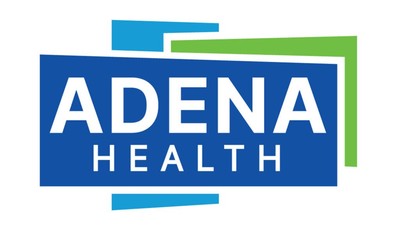
Ohio University Teams With Area Counties To Train Health Workers
Presented By Classic Brands
(Athens)– The Jackson County Health Department is working in partnership with Ohio University to train and deploy 13 community health workers to address public health concerns and impacts of COVID-19 across 11 counties.
The project was made possible through a $4.5 million grant which was secured with the help of the Ohio Alliance for Innovation in Population Health. The grant will train workers in Athens, Gallia, Hocking, Jackson, Lawrence, Meigs, Perry, Pike, Ross, Scioto and Vinton counties.
The Alliance was created in October 2017 as a partnership between OHIO and the University of Toledo and is made up of Ohio University employees. Rick Hodges, director of the Alliance, said projects like this are what the organization was created to do.
The organization seeks to tackle problems at the local level using community members because they have a better understanding of their problems than outsiders. For Southeast Ohio, these problems are wide-reaching and complex.
Melissa Kimmel is an Executive in Residence with the Alliance. She said Southeast Ohio residents have health factors which put them more at risk of catching COVID-19.
“Our communities in Appalachia tend to have a higher rate of chronic illnesses and those factors make COVID-19 more impactful,” Kimmel said. To address this, the Alliance is training these community health workers to work on the front lines and improve health literacy in the region.
A community health worker is a community member who receives training in advocacy and brokerage for health care resources and health changes. The key factor that makes community health workers a fit for this project is the fact they come from the community.
“Sometimes people don’t necessarily trust health care and authority in the region, and these are people who speak like them and look like them being trained and returning to their communities to make them healthier,” Keri Shaw, an associate professor at Ohio University, said.
Kevin Aston, health commissioner with the Jackson County Health Department, said these workers are key when it comes to health measures like vaccinations.
“There’s no shortcut to building trust,” Aston said. “Folks who have interacted with me and my staff before the COVID emergency have been much more receptive to listening to what I and my staff have to say because we’ve spent time building those relationships.”
Community health workers can facilitate those connections. The grant gives community members the chance to receive credible health information from their neighbors rather than outsiders.
There is not a complete lack of community health care workers throughout Southeast Ohio, but Shaw says there is room for growth. Several county health departments currently employ community health care workers, but greater challenges limit health care accessibility. Hodges said the phenomenon of community health workers is a new, but severely needed.
“This answers a need we’ve had in health care for a very long time,” Hodges said. “The lack of it has contributed to poor outcomes and I think the presence of community health workers is going to improve them significantly.”
Those greater challenges Shaw mentioned include things like the age of the population, a resistance to seeking outside assistance, transportation, poverty, food options and housing issues. Due to these challenges, health care is not always accessible for Southeast Ohioans and COVID-19 only further complicated the issue.
“I live in a suburb of Columbus, I have great health insurance and I can walk into any provider of my choice within an hour if I need to and get great care,” Hodges said. “People who live in Appalachia who don’t have access to good insurance or face issues like transportation don’t have those choices. There are good primary care providers in Appalachia, but if you can’t get to them, it’s an additional barrier.”
Shaw, Hodges and Kimmel all stressed that the perception good health care is simply absent from the region or people in Appalachia just don’t make good health care decisions is patently false. The problem is the lack of access and that’s what the grant seeks to address.
To implement the project, Ohio University chose to work with the Jackson County Health Department because it is uniquely positioned to best meet the goals of the grant.
“Jackson County is a good fit to house this because the location is central to other counties in the area,” Kimmel said. “There’s a regional understanding of health that has been cultivated and the relationships between other health departments and Jackson County were already in place.”
While the $4.5 million will more than double the budget of the Jackson County Health Department and come with a large influx of staff, the Alliance is confident it’s a responsibility the department is equipped to undertake.
Aston added that the regional relationships will help his department transition into the grant smoother, and while he will be busy, he’s more than ready to take on the challenge.
“The challenging part is that there’s still a pandemic going on,” Aston said. “Public health is still really busy with the pandemic and it’s hard now, but it’s going to get easier … there should be an adequate span of control for the work that’s going to happen.”
The team working on the grant is taking a “strength-based approach,” which means highlighting what certain communities do well and replicating it throughout the area.
Currently, applications for the community health worker applications are being reviewed. In the next month or so, interviews will begin. The team expects hires to be completed by mid- to late November and then training will begin soon after.
Aside from the program’s immediate goals, the Alliance is hoping it has long-lasting effects on health care in Southeast Ohio.
“I hope there is an embrace of health literacy, proactive health behaviors and I would really like to see a reduction in the stigma associated with Southeast Ohio,” Kimmel said.
Shaw added that she hopes to see an increase in trust of health departments and public health. She also hopes that there is an increased understanding of the important role community health workers can play.
There’s also hopes among the Alliance that this grant and programs like it will lead to an increased presence of Medicaid providers in the area, which is currently among the challenges factoring into public health in Appalachia.
Aston said he hopes the grant leaves Southeast Ohio in a position to achieve better health outcomes across the board. Factors like substance use, exercise habits and diet all feed into bad outcomes. Aston hopes increased health literacy can curb those outcomes.
Beyond those goals, Aston wants to spread the word about not only Jackson County Health Department, but all health departments in the area.
“I want people to know local health departments care about the citizens they serve, and I’m happy to have another ally on my team,” Aston said. “Sometimes I’ve heard public health officials maligned, but our hearts are in the right place and I’m happy we’re going to get some extra help and hopefully build some trust.”




























